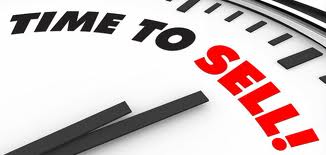 If you’ve started a small business from the ground up, then you know just how much hard work goes into making a business successful.
If you’ve started a small business from the ground up, then you know just how much hard work goes into making a business successful.
So, when it comes time to sell your baby, it’s important that your exit strategy is the right one in order for all that hard work to pay off.
With sale success in mind, here are 5 key strategies to properly selling your small business:
1. Patience is a Business Virtue
No matter how much planning goes into the sale of your small business, if you don’t wait until the most opportune time to sell, then you’ll likely end up disappointed. This is true for you, the seller, as well as the potential buyer.
In other words, it’s wise to wait until the timing is right and your small business is financially stable before selling. A business that’s successful on paper will result in a higher selling price. That said it’s also important to wait for a buyer who’s not only financially capable of taking over your business, but also business savvy.
2. Picking the Right Buyer
Most small business owners don’t just sell their livelihoods only to walk away and never think about the sale again. In fact, owners have a vested interest in their businesses long after the sale either in the form of shares, partial ownership, or on an emotional level.
Because of this, it’s imperative that you choose the right buyer to take over your small business. This means a financially stable buyer with experience in running a small business. On top of that, look for a buyer with the same passion you have for your small business.
3. Broker vs. Sell by Owner
Selling your small business yourself may sound like a good idea, especially considering the fees and commission involved with hiring a broker. But, if you don’t know what you’re doing in the sale department, then the money saved selling on your own may be more trouble than it’s worth.
So, take into consideration the paperwork involved with purchase agreements, nondisclosure and confidentiality agreements, bills of sale, leases, and security agreements. If that’s something you can handle realistically, then a broker may not be necessary.
4. Finding the Right Selling Price
When it comes down to the bottom dollar, a lack in research could result in your small business’s selling price coming in too high or too low. A high price is bad because it scares away potential buyers whereas a low price makes you, the seller, look like you’re trying to get out of a business gone wrong.
So, it’s wise to consider everything from the competition to the economy to the industry your business is based in before setting the sale price. This, combined with independent research on brand specifics, will result in the right asking price.
5. The Why Behind the Sale
Beyond all the pre-sale preparation and planning, everything about selling your small business will boil down to one word and one word only: why? The buyer’s definitely going to want to know, so be prepared.
Ask yourself why you’re selling your bread and butter – if it’s because you’re moving on to new horizons or retiring, then that’s perfectly fine. But, if you’re selling because the business is failing, then that’s something the buyer needs to know. In other words, be honest with yourself and the potential buyer.
By keeping these key strategies in mind, you’ll have a hassle-free time selling your beloved small business.
Photo credit: sellabusinessflorida.com
About the Author: Adam Groff is a freelance writer and creator of content. He writes on a variety of topics including personal health, the best accounting software, and small business.
